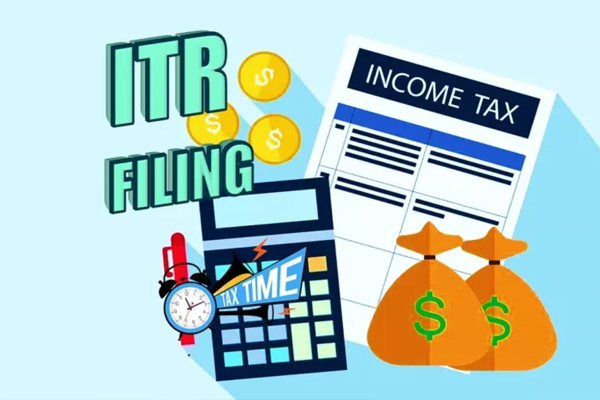


Income Tax Return Filing
In India, there are two types of taxes: direct tax, which is directly levied upon the individual’s income, and indirect tax, which is levied indirectly upon an individual. Every individual receiving income in India is subject to income tax under the Income Tax Act 1961. Under the Income Tax Act, there can be income from 5 different heads: Income from Salary, House/Property, Capital gains, Business and Profession and other sources. The income of individuals, Hindu undivided families, associations of persons, bodies of individuals, firms and companies are taxed under the Income Tax Act.
Income Tax Return (ITR) is a form in which the taxpayer, whether an individual or firm or Hindu undivided family, discloses details of its income, claims exemptions and deductions applicable on it and the amount of tax payable on such income.
Income Tax Return (ITR) can be filed in two ways, i.e., the Online Method and another offline Method. As per the Government Instructions, all the income tax returns will be filed only through the ITR e-filing Method. Offline Method is not available.
So, in the following cases, ITR Online e-filing is Mandatory from 1st April 2022 if:
1) Your taxable gross income exceeds the limit as per the Income Tax Department of any F.Y.
2) You want to claim any TDS Refund.
3) You want to take the benefits of carrying forward the losses.
5) Any foreign travel expenses are more than 2 lakh Rupees in a year.
6) The electricity bill costs more than 1 lakh Rupees a year.
7) Total business sales or turnover is more than 60 lakh Rupees in a year.
8) You have a yearly TDS of more than 25,000 Rupees.
